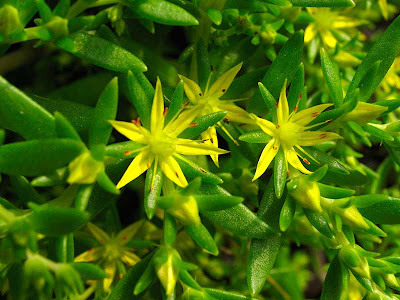
Saturday, May 30, 2009
Friday, May 29, 2009
Thursday, May 28, 2009
Wednesday, May 27, 2009
Tuesday, May 26, 2009
Monday, May 25, 2009
Watermelon Planting Hills Located in Indiana
Sunday, May 24, 2009
Cresent Moon
Saturday, May 23, 2009
Friday, May 22, 2009
Thursday, May 21, 2009
Roses at Indiana University Southeast
Wednesday, May 20, 2009
Orange Tiger Lilies
These are pictures of orange tiger lilies blooming in Jeffersonville, Indiana (right across the Ohio River in Louisville, Kentucky).
UPDATE (February 2018): Sadly, the person whose garden I took these pictures died in January of 2018. May she rest in peace...

UPDATE (February 2018): Sadly, the person whose garden I took these pictures died in January of 2018. May she rest in peace...

Monday, May 18, 2009
Sunday, May 17, 2009
Yellow Flowering Creeping Sedum
This is one powerful ground cover plant. It came in with some Siberian Irises but is now overrunning those flowers. Its common name is Creeping Sedum or Mexican Sedum. Its scientific name is Sedum mexicanum.
The leaves remind me of a succulent but it is almost vine like. The plants have taken over a meter by 40 cm area in two growing seasons.

The leaves remind me of a succulent but it is almost vine like. The plants have taken over a meter by 40 cm area in two growing seasons.

Saturday, May 16, 2009
Purple and White Siberian Iris
Friday, May 15, 2009
Locust Tree Flower
Here is a white or ivory flower cluster of the locust tree. There were only two flower clusters left on this tree when it caught me attention. The tree is located in Clark County, Indiana right across the Ohio River from Louisville, Kentucky.
If I remember, this tree is a quick grower but the limbs break easily in strong winds.

If I remember, this tree is a quick grower but the limbs break easily in strong winds.

Thursday, May 14, 2009
Lavender Rhododendron Flowers
Wednesday, May 13, 2009
Dendrites - A Pretty Pseudofossil
The black plant looking shapes in these pictures are dendrites. Sometimes referred to as pseudofossils or ferns, they are mineral formations created by water making its way into rock fissures. The water evaporates or flows off and leaves these black (manganese oxide) shapes behind.

The shapes remind me of images I have seen from graphed fractals in mathematics. This rock was found in Louisville, Kentucky (Jefferson County) while looking for fossils in the Silurian and Devonian rock layers. The rock layer is sometimes referred to as the Louisville or Jeffersonville limestone layer.

The shapes remind me of images I have seen from graphed fractals in mathematics. This rock was found in Louisville, Kentucky (Jefferson County) while looking for fossils in the Silurian and Devonian rock layers. The rock layer is sometimes referred to as the Louisville or Jeffersonville limestone layer.
Subscribe to:
Comments (Atom)












































